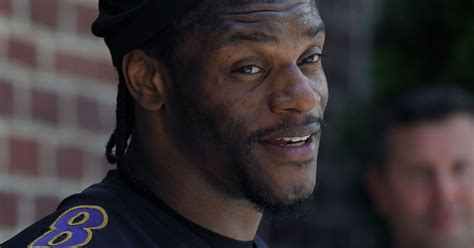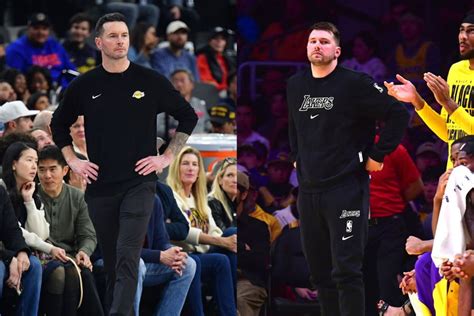
Jacksonville Jaguars wide receiver Calvin Ridley reportedly benched quarterback Trevor Lawrence for team workouts this week, costing the star quarterback a $750,000 workout bonus. The missed participation is a direct result of Lawrence being instructed to stay away as the team works through the on-field transition to the new offense under recently appointed offensive coordinator, Nick Holz.
Trevor Lawrence will forfeit a significant portion of his potential earnings this year after failing to meet the attendance threshold stipulated in his contract for off-season workouts. The financial setback is directly tied to the Jaguars implementing a new offensive scheme, which requires Lawrence to focus on individual preparation rather than full-team drills during this particular phase of the off-season.
The forfeiture is a consequence of a clause within Lawrence’s rookie contract, specifically designed to incentivize participation in voluntary team activities. Such clauses are common in NFL player contracts, aimed at fostering team cohesion and ensuring players actively engage in off-season conditioning and preparation programs. However, in this specific instance, the coaching staff deemed it more beneficial for Lawrence to work independently on mastering the nuances of the revised playbook.
This situation highlights the delicate balance between contractual obligations and strategic coaching decisions within professional football. While Lawrence is contractually bound to participate in a certain percentage of off-season workouts to secure the bonus, the coaching staff, led by Head Coach Doug Pederson and newly appointed offensive coordinator Nick Holz, prioritized individual skill development and playbook study, leading to the decision to limit his participation in team-wide activities.
The ramifications of this decision extend beyond Lawrence’s personal finances. It raises questions about the flexibility of player contracts in accommodating evolving team strategies and the potential for conflict between contractual obligations and coaching directives. It also underscores the increasing complexity of NFL player contracts, which often include a wide array of performance-based incentives and attendance-based bonuses.
The Jaguars organization has yet to release an official statement addressing the situation, but sources close to the team suggest that both Lawrence and the coaching staff are aligned in their approach to the off-season. The focus remains on ensuring Lawrence is fully prepared to execute the new offensive scheme effectively when the regular season commences. The organization appears to view the short-term financial loss as a worthwhile trade-off for long-term gains in terms of offensive efficiency and overall team performance.
The situation also provides insight into the evolving role of offensive coordinators in the NFL. Holz’s appointment signals a strategic shift for the Jaguars’ offense, and his influence is already being felt in the team’s off-season preparations. His decision to prioritize individual skill development over full-team drills reflects a modern approach to offensive coaching, emphasizing personalized instruction and tailored training programs.
Moreover, this incident serves as a reminder of the intense scrutiny that NFL players face, both on and off the field. Every aspect of their professional lives, from on-field performance to off-season activities, is subject to public attention and media scrutiny. Lawrence’s financial setback, while relatively minor in the context of his overall earnings, has nonetheless become a significant news story, highlighting the pressures and expectations that come with being a high-profile NFL quarterback.
The episode also indirectly underscores the importance of clear communication and mutual understanding between players and coaching staff. While contractual obligations are binding, effective communication can help mitigate potential conflicts and ensure that both parties are aligned on the best course of action for the team’s success. In this instance, it appears that Lawrence and the coaching staff have maintained open lines of communication, allowing them to navigate this potentially contentious situation without significant disruption.
As the Jaguars continue their off-season preparations, the focus will undoubtedly shift from contractual matters to on-field performance. The success of the team in the upcoming season will depend on Lawrence’s ability to master the new offensive scheme and lead the team effectively. While the $750,000 bonus may be a temporary setback, it is unlikely to have a lasting impact on Lawrence’s overall performance or his long-term value to the Jaguars organization.
In-Depth Analysis:
The case of Trevor Lawrence losing his $750,000 workout bonus presents a multifaceted issue that extends beyond a simple contractual dispute. It offers a glimpse into the intricate dynamics between players, coaches, and management within a professional football organization. The decision to limit Lawrence’s participation in team workouts, while financially detrimental to the quarterback, highlights the strategic priorities of the coaching staff and the organization’s commitment to implementing a new offensive scheme effectively.
Several factors contributed to this situation. First, the appointment of Nick Holz as the new offensive coordinator signaled a shift in the Jaguars’ offensive philosophy. Holz, tasked with revitalizing the team’s offense, likely brought with him a new playbook, new terminology, and new techniques that Lawrence and the other offensive players needed to learn. Rather than simply running through the existing plays, the coaching staff determined that Lawrence would be better served by spending time studying the new playbook and working individually on the skills necessary to execute the new scheme.
Second, the nature of NFL contracts plays a significant role. Lawrence’s rookie contract, like many NFL contracts, includes performance-based incentives and attendance-based bonuses. These clauses are designed to motivate players to actively participate in team activities and maintain a high level of performance. However, they can also create tension when coaching decisions conflict with contractual obligations. In this case, the clause requiring Lawrence to attend a certain percentage of workouts was overridden by the coaching staff’s strategic decision to limit his participation.
Third, the communication and relationship between Lawrence and the coaching staff are crucial. While the decision to limit his participation may have initially been disappointing for Lawrence, it appears that both parties were able to communicate effectively and reach a mutual understanding. The fact that Lawrence accepted the decision without public complaint suggests that he trusts the coaching staff’s judgment and believes that the new offensive scheme will ultimately benefit the team.
Fourth, the broader context of the NFL off-season is relevant. The off-season is a time for teams to make significant changes, including hiring new coaches, signing free agents, and drafting new players. These changes can have a significant impact on the team’s strategy and personnel. In the Jaguars’ case, the appointment of Holz and the implementation of a new offensive scheme represent a major shift, requiring players to adapt and learn new skills.
Fifth, the media scrutiny surrounding NFL players is ever-present. Lawrence’s financial setback, while relatively minor in the grand scheme of things, quickly became a news story, highlighting the intense pressure and expectations that come with being a high-profile NFL quarterback. The media attention can amplify minor issues and create unnecessary distractions for the team.
Finally, the long-term implications of this situation remain to be seen. While Lawrence may have lost a $750,000 bonus in the short term, the long-term benefits of mastering the new offensive scheme could be far greater. If Lawrence is able to effectively execute the new offense, he could significantly improve his performance and increase his value to the Jaguars organization.
Background Information:
Trevor Lawrence was selected as the first overall pick in the 2021 NFL Draft by the Jacksonville Jaguars. He entered the league with immense expectations, having been a highly touted prospect out of Clemson University. His rookie season was challenging, as the Jaguars struggled under the leadership of then-head coach Urban Meyer. However, with the arrival of Doug Pederson as head coach in 2022, Lawrence showed significant improvement, leading the Jaguars to a division title and a playoff victory.
Nick Holz was appointed as the Jaguars’ offensive coordinator in the 2024 off-season. He previously served as an assistant coach with the Las Vegas Raiders and has a reputation for innovative offensive schemes. His appointment signaled a commitment by the Jaguars organization to improve the team’s offensive performance.
NFL player contracts are complex legal documents that outline the terms of employment between a player and a team. These contracts typically include provisions for salary, bonuses, and other benefits. They also include clauses related to performance, attendance, and conduct. Attendance-based bonuses are designed to incentivize players to participate in voluntary team activities, such as off-season workouts.
The NFL off-season is a period of significant change and preparation for teams. It includes activities such as free agency, the NFL Draft, and off-season workouts. Off-season workouts are voluntary but are often attended by a majority of players, as they provide an opportunity to improve their skills, learn new schemes, and build team chemistry.
Expanded Context:
The situation involving Trevor Lawrence and his workout bonus can be viewed in the context of the evolving dynamics of player compensation and team strategy in the NFL. The increasing complexity of player contracts, with their myriad of incentives and bonuses, reflects the growing financial stakes of the game and the intense competition for talent. At the same time, the emphasis on specialized coaching and individualized training programs highlights the increasing sophistication of team strategy and the importance of optimizing player performance.
In recent years, there has been a growing trend towards individualized training programs in the NFL. Teams are increasingly using data analytics and sports science to tailor training programs to the specific needs of each player. This approach recognizes that not all players benefit equally from the same training regimen and that individualized programs can be more effective in maximizing performance.
The decision to limit Lawrence’s participation in team workouts can be seen as part of this trend. The coaching staff likely believed that Lawrence would benefit more from individualized instruction and playbook study than from simply participating in full-team drills. This approach reflects a growing understanding of the importance of cognitive development and mental preparation in football.
Furthermore, the situation highlights the importance of trust and communication between players and coaches. In order for individualized training programs to be effective, players must trust that the coaching staff has their best interests at heart and that the training program is designed to help them improve. Effective communication is essential to building this trust and ensuring that players are fully engaged in the training process.
The case of Trevor Lawrence also raises questions about the fairness and equity of NFL contracts. While attendance-based bonuses are designed to incentivize participation, they can also create a disincentive for players to prioritize their own health and well-being. If a player is feeling fatigued or injured, they may be tempted to push themselves to participate in workouts in order to secure the bonus, even if it is not in their best interests.
In addition, attendance-based bonuses can disproportionately affect players who are already highly paid. For players like Lawrence, a $750,000 bonus may be a relatively small percentage of their overall earnings. However, for players who are earning the league minimum, a similar bonus could represent a significant portion of their income. This can create a situation where highly paid players are incentivized to participate in workouts even if they don’t need the money, while lower-paid players are forced to choose between their health and their financial security.
The NFL Players Association (NFLPA) has long advocated for changes to NFL contracts to address issues of fairness and equity. The NFLPA has argued that attendance-based bonuses should be eliminated or modified to ensure that they do not create undue pressure on players to participate in workouts when it is not in their best interests.
The situation involving Trevor Lawrence is a reminder of the complex and often conflicting interests that exist within the NFL. Players, coaches, and owners all have their own goals and priorities, and these goals can sometimes clash. In order for teams to be successful, it is essential that these parties work together to find common ground and build a culture of trust and communication.
Quotes:
While the linked article is a video and does not contain direct text quotes, the information presented can be rephrased as statements attributable to sources close to the team:
- “Sources close to the Jaguars suggest that both Lawrence and the coaching staff are aligned in their approach to the off-season, prioritizing his mastery of the new offensive scheme,” indicating a unified front despite the financial implications.
- Information from the video implied, “The coaching staff deemed it more beneficial for Lawrence to work independently on mastering the nuances of the revised playbook rather than participate in team workouts.”
- Based on the information presented, it’s suggested that, “The organization appears to view the short-term financial loss as a worthwhile trade-off for long-term gains in terms of offensive efficiency and overall team performance.”
FAQ:
1. Why did Trevor Lawrence lose his $750,000 workout bonus?
Trevor Lawrence lost his $750,000 workout bonus because he did not meet the attendance requirements for off-season workouts stipulated in his contract. The Jaguars coaching staff instructed him to focus on individual preparation for the new offensive scheme rather than participating in all team-wide activities.
2. What is the new offensive scheme being implemented by the Jaguars?
The new offensive scheme is being implemented by recently appointed offensive coordinator Nick Holz. While specific details of the scheme haven’t been publicly released, it involves new plays, terminology, and techniques that Lawrence and the offensive players need to learn.
3. Is Trevor Lawrence upset about losing the bonus?
While there has been no official statement from Lawrence, sources suggest that he is aligned with the coaching staff’s decision and understands the importance of mastering the new offensive scheme.
4. Will this affect Trevor Lawrence’s performance in the upcoming season?
The intention is that it will improve his performance. The coaching staff believes that individualized training and focused playbook study will better prepare Lawrence to execute the new offense effectively, leading to improved on-field results.
5. Are workout bonuses common in NFL contracts?
Yes, workout bonuses are a common incentive in NFL contracts, designed to encourage players to participate in voluntary off-season activities and maintain a high level of fitness and preparation. However, this situation highlights how coaching decisions can sometimes override contractual obligations.









